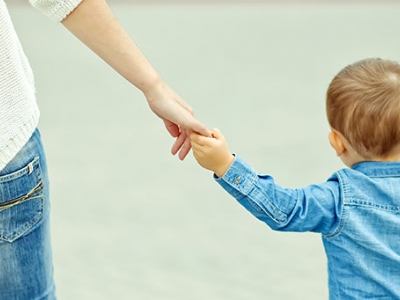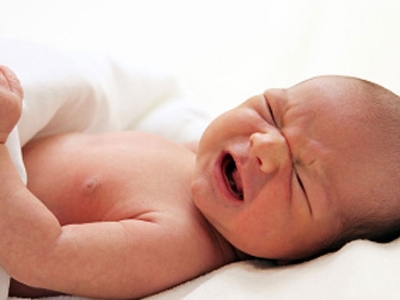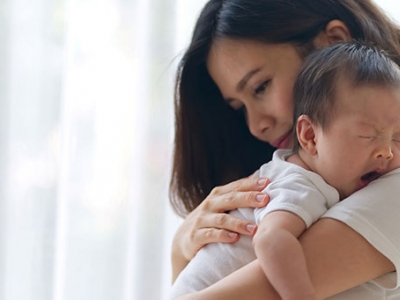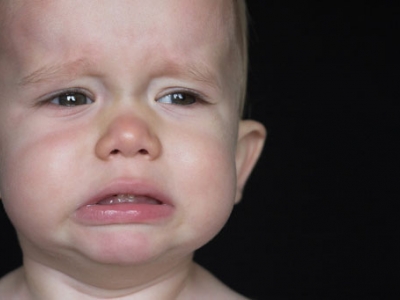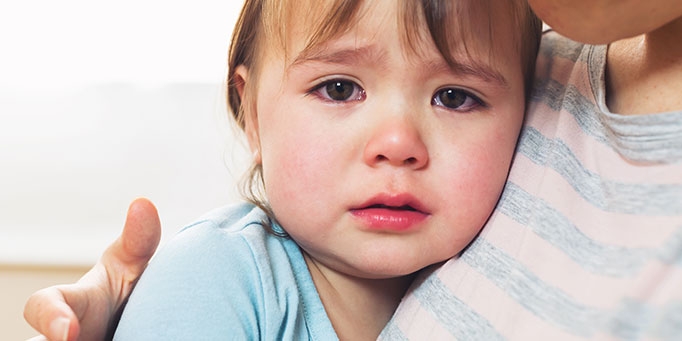
Little kids, big feelings—why they need help
Dr Yixin Jiang Xu explains why children need help to regulate their emotions.
For little kids, life is an emotional roller-coaster. Babies cry often, toddlers have tantrums, and preschoolers face many different emotions as they explore and become increasingly independent.
In a previous article, ‘Helping children feel safe and secure’, I mentioned that a key aspect of being a ‘safe haven’ for our children is to be a refuge of comfort when they are emotionally distressed. In this two-part series, I will explore in more detail why young children need us to help them regulate their emotions, and then offer some practical tips for how we can help them.
The emotional brain of babies and toddlers
Helping our children through their emotional experiences starts with understanding the emotional brain of a young child. Put simply, the emotional brain of babies, toddlers and preschoolers is very immature.
Babies are born with a primitive brain that is geared towards survival—they respond to hunger, thirst, cold, tiredness and being left alone (since their survival depends on a caregiver). They will cry in response to these emotional triggers, and their brains become flooded with the stress hormone, cortisol. They are unable to regulate their stress response—that is, to soothe or calm themselves down.
That is why one of the most important and demanding roles of a new parent is comforting and soothing their baby. When I finished up to go on maternity leave, my psychology PhD supervisor had one piece of advice for me: as much as humanly possible, try to respond to my baby’s cries during her first year.
In the first few years of life, the brain is developing at an incredible rate, but toddlers and preschoolers still have very limited capacity to manage their own emotions. Their brains are more emotional than rational. When overwhelmed, young children tend to react with an amygdala-driven ‘fight–flight–freeze’ stress response—that’s what the characteristic toddler tantrums and meltdowns are about. While these outbursts might make us feel out-of-control, our children’s feelings and behaviour truly are outside of their control.
Toddlers’ brains do not yet have the higher-order ability of regulating their overwhelming emotions. And while preschoolers show early signs of emotional regulation (such as being able to recognise and communicate how they are feeling to some degree), they are still easily overwhelmed and lack mature self-regulation capabilities. (In fact, the prefrontal cortex, responsible for executive functions like emotional self-regulation, impulse control and rational decision-making, is not fully developed until the age of 25!).
Co-regulating our children’s emotions
Young children who are not yet able to self-regulate need adults to co-regulate their emotions. As the parent, you are, in a sense, ‘lending’ your more developed prefrontal cortex to help calm and manage your child’s stress response.
Co-regulation attests to the amazing power of caring relationships. Research shows that the mere presence of another person lowers the level of the stress hormone cortisol in children. Being in the presence of a safe, secure and caring adult also releases oxytocin (the hormone responsible for feelings of love and bonding) and dopamine (the ‘feel-good’ brain neurotransmitter).
The Bible portrays God as a loving Father whose presence and attention comforts his children in their distress. The Psalms give expression to the whole spectrum of human emotion, as the psalmists cry out to God in the midst of emotional turmoil. They express feelings like loneliness, fear, anguish, sorrow, discouragement, shame and anger, as well as love, joy and hope. The psalmists do not suffer in silence, but take comfort that God is present and hears every cry of their heart:
The Lord is close to the brokenhearted and saves those who are crushed in spirit. (Psalm 34:18)
O Lord, you hear the desire of the afflicted; you will strengthen their heart; you will incline your ear. (Psalm 10:17)
By contrast, experiencing a distressing emotion alone intensifies stress for adults and children alike. At the height of his suffering on the cross, Jesus cried out, ‘My God, my God, why have you forsaken me?’. Jesus was enduring great physical pain and bearing the judgement for our sins, but his greatest agony was being separated from his Father.
Relationships play a key role in emotional regulation. As adults, we turn to friends, family, the church and, above all, to God, in our distress. For the young children in our lives, a loving adult plays a critical role in being a ‘safe haven’—someone to comfort them and co-regulate their emotions. What a great privilege and responsibility!
Next time, we will look at some practical steps we can take to help little kids with their big feelings.
Recommended reading:
Whole-brain Child by Daniel Siegel and Tina Payne Bryson (Scribe Publications, 2012)
Raising an Emotionally Intelligent Child by John Gottman (Fireside Books, 1998)
How to Talk So Little Kids Will Listen by Joanna Faber and Julia King (Scribner, 2017)
---
Dr Yixin Jiang Xu is a stay-at-home mother of a two-year-old girl and has a PhD in psychology. She facilitates a Facebook group Parenting babies and toddlers, where she provides parenting resources and webinars. She and her family attend St Paul's Anglican Church, Carlingford.
For more articles from Growing Faith, subscribe to our monthly e-newsletter.
To hear about the latest books and resources from Youthworks Media, subscribe here.


